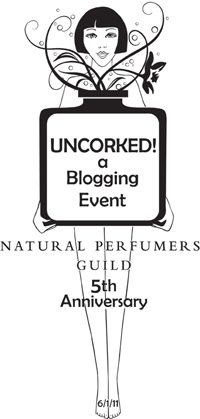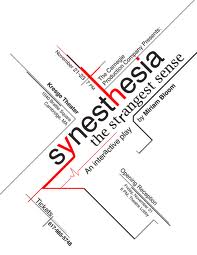
This is part of Uncorked, an anniversary celebration of five years of the Natural Perfumers Guild, with the following other bloggers/companies blogging today:
Alec Lawless, Being Led by the Nose
Anu Prestonia, Anu Essentials
Anya McCoy, Anya’s Garden Perfumes
Charna Ethier, Providence Perfume
Christine Ziegler, A Little Ol’Factory
Dawn Spencer Hurwitz, DSH Notebook
Denise Smith, gtt by gtt
Elise Pearlstine, Bellyflowers
Emily Pienaar, The Western Cape Perfumery
Ida Meister, Ca Fleure Bon
Isabelle Gelle, Les Parfums d’Isabelle
JoAnne Bassett, Natural Perfumes
Karen Williams, Aromatics International
Laura Natusch, Olive and Oud
Lisa Abdul-Quddus, Blossoming Tree Bodycare
Noelle Smith, Ellenoire
Robert Tisserand, I’m Just Saying
Ross Urrere, Olfactory Rescue Service
Susan Stype, Aromatherapy Contessa
Trygve Harris, Absolutely Trygve
About 2004 or ’05, I was frantically addicted to mainstream perfume. I knew not one thing about it, how it was made; I never once stopped to wonder about whether or not it was natural. This was very unlike me: for nearly 20 years, I’d been dedicated to organic foods (even when I was 17, earning minimum wage, I decided I wanted to dedicate myself to organic farms and gardens–I’d always been an environmentalist at heart), to health food, to recycling, etc. I did end up doing a fair amount of “mini-farming” using Biointensive techniques (which are 100% organic). Then out of the blue (I was diagnosed with MS around 2000, so I’d been somewhat distracted :-(, I came across two books which changed my life forever: Perfume by Patrick Suskind, from which I learned how perfume _used to be made_, and Essence & Alchemy by Mandy Aftel, from which I learned I could actually become a natural perfumer myself.
 Natural perfume? I never knew there was such a thing; if there was perfume that had the word “natural” in front of it, I realized I should become a natural perfumer. Actually, at first I felt wronged. Here I’d been going along thinking all the discussion of notes in different perfumes was actually discussion of real natural, botanical essences and other natural aromatics. I had no idea all the perfume I’d grown to think of as precious was all synthetic! There was no one to blame but me: I never bothered to ask. So I decided that if the perfume industry was lying, not only would I become a natural perfumer, I’d become one of the best the modern world has yet known.
Natural perfume? I never knew there was such a thing; if there was perfume that had the word “natural” in front of it, I realized I should become a natural perfumer. Actually, at first I felt wronged. Here I’d been going along thinking all the discussion of notes in different perfumes was actually discussion of real natural, botanical essences and other natural aromatics. I had no idea all the perfume I’d grown to think of as precious was all synthetic! There was no one to blame but me: I never bothered to ask. So I decided that if the perfume industry was lying, not only would I become a natural perfumer, I’d become one of the best the modern world has yet known.
 When I first started Mandy Aftel’s workbook, I still didn’t know how I could ever become a professional; to be honest, at first I wasn’t even sure professional natural perfumery was something I wanted in my life. But I was definitely meant to be a perfumer. Once I got past the first stage of learning, formulae started coming to me as complete “thought forms,” a phrase the best therapist I’ve ever had was fond of saying. Sometimes poems come to me as complete thought-forms; I just need to write them out. Same thing with perfume formulae; the formulae come to me as complete, but sometimes I do need to change some things around with a given thought-form perfume, less costus, more jasmine sambac, remove neroli, etc.
When I first started Mandy Aftel’s workbook, I still didn’t know how I could ever become a professional; to be honest, at first I wasn’t even sure professional natural perfumery was something I wanted in my life. But I was definitely meant to be a perfumer. Once I got past the first stage of learning, formulae started coming to me as complete “thought forms,” a phrase the best therapist I’ve ever had was fond of saying. Sometimes poems come to me as complete thought-forms; I just need to write them out. Same thing with perfume formulae; the formulae come to me as complete, but sometimes I do need to change some things around with a given thought-form perfume, less costus, more jasmine sambac, remove neroli, etc.
 I’m a synesthete, so something like perfume brings me more joy than I can express. It satisfies me on many levels: I see smells, hear them, can imagine exactly what a combination of essences will smell like, etc. I have great perfume imagination. I make complete perfumes from scratch. I don’t make a base accord, and then try to imagine what else I could add. I make complete perfumes; if a given formula doesn’t work, it’s right back to the drawing board to imagine my way to another complete (successful) perfume. I rarely make mistakes, but it does happen. I just can’t see any way I like better than making complete perfumes all in one go. Hit or miss, all or nothing, success or no success–that’s the way I run my life.
I’m a synesthete, so something like perfume brings me more joy than I can express. It satisfies me on many levels: I see smells, hear them, can imagine exactly what a combination of essences will smell like, etc. I have great perfume imagination. I make complete perfumes from scratch. I don’t make a base accord, and then try to imagine what else I could add. I make complete perfumes; if a given formula doesn’t work, it’s right back to the drawing board to imagine my way to another complete (successful) perfume. I rarely make mistakes, but it does happen. I just can’t see any way I like better than making complete perfumes all in one go. Hit or miss, all or nothing, success or no success–that’s the way I run my life.
Thank you Adam for your kind mention of my book and what it meant to you. It is the hope when you write a book people will find in it what you you experienced when you wrote it. You have given this back to me with your beautiful writing about it. I will put this upon on my personal Facebook page to share it.
Nice post Adam! Like you I didn’t know there was such a thing as natural perfumery until I was introduced to it.
Mandy Aftel’s perfumes were my first experience with naturals and I’m so glad for the discovery. I look forward to learning more about your natural creations now, too, Adam! I’m intrigued with how you build them in “one go.” Sounds to me like a process that comes through you as much as from you. Very cool.
Btw, I had to look up synesthete. You’re a gifted man!
I love hearing your thoughts out loud !
Mandy’s books were very instrumental to so many of us;we’re fortunate to have such inspiration.
Be well, my dear.
Adam, I had no idea you were “addicted” to synth perfumes as recent as 2005. What a turnaround! I really loved reading about your methodology for creating perfumes. We each have our own styles and thought processes.
I love that you took part in the Guild’s 5th birthday party online, and I can’t wait to smell your perfume for our Fall project (hush, hush) ;-)
PS don’t forget to post this on the Guild Facebook page, the other Guild bloggers are.
Until I read this, I’d forgotten that I, too, didn’t understand that mass-market perfumes were synthetic until I read Mandy Aftel. A wonderful post–makes me so curious to try your creations. Someday…Laura
Yay for leaving the synths behind! :) Thank you for sharing your tale, Adam!